Tech Engineer's survival guide in workplace
Tech Engineer's survival guide in workplace
Introduction

Imagine a world where tech engineers and non-tech individuals view each other through a quirky, almost alien lens. To the non-tech crowd, engineers might seem like futuristic beings, while engineers could see non-tech individuals as inhabitants of a bygone era. This humorous image highlights a real challenge: tech engineers often excel at understanding complex computer systems but may struggle when it comes to human interactions.
The reason behind this struggle is straightforward: computers offer predictable responses to specific inputs, such as 1+1 always equaling 2. Humans, however, are far from predictable. Our brains cannot easily distinguish between genuine threats and workplace stress, such as a boss criticizing us for missing a deadline. Both scenarios can trigger our survival instincts.
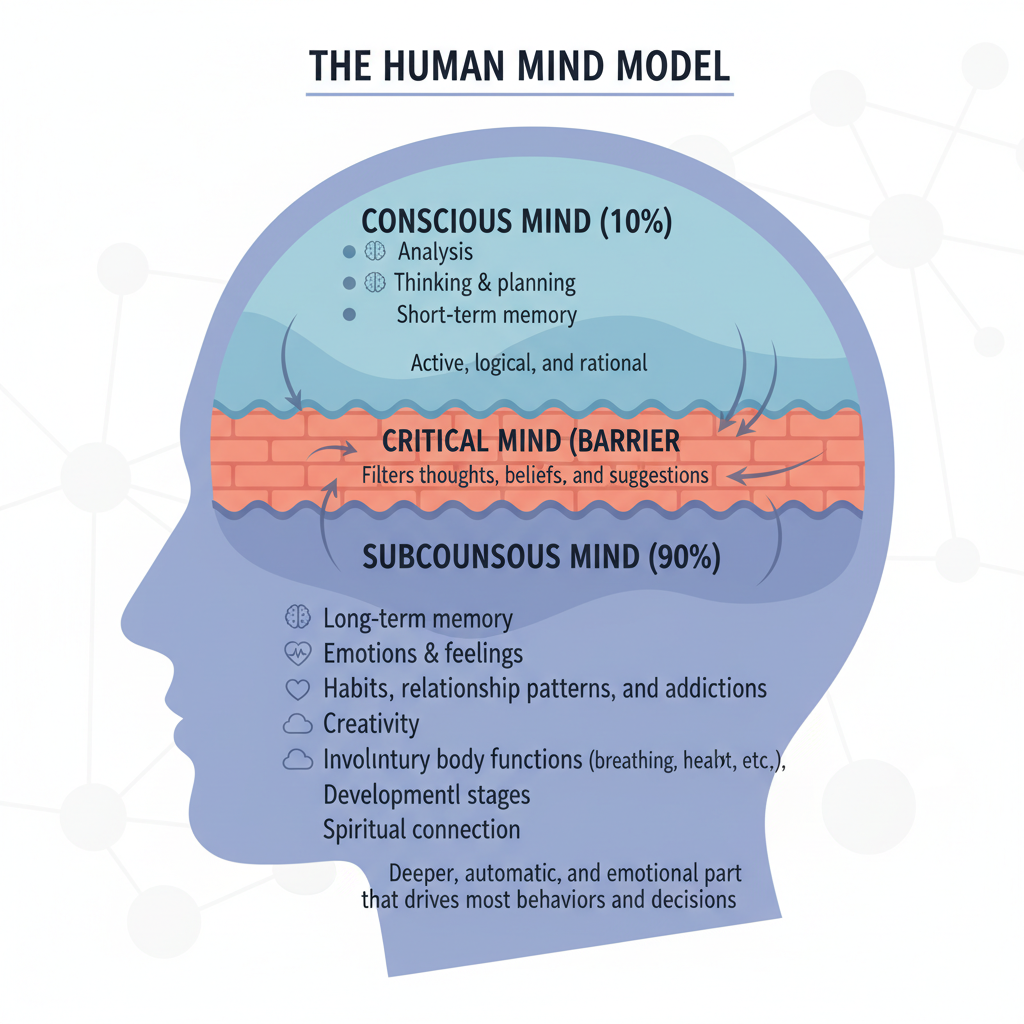
The truth is, emotions play a significant role in our decision-making processes. Despite our aspirations to be as logical as Mr. Spock from Star Trek, we are primarily emotional beings. In fact, up to 90% of our decision-making is unconscious. To truly reach and communicate effectively with others, we must learn to engage with the unconscious mind.

What is Emotional Intelligence?
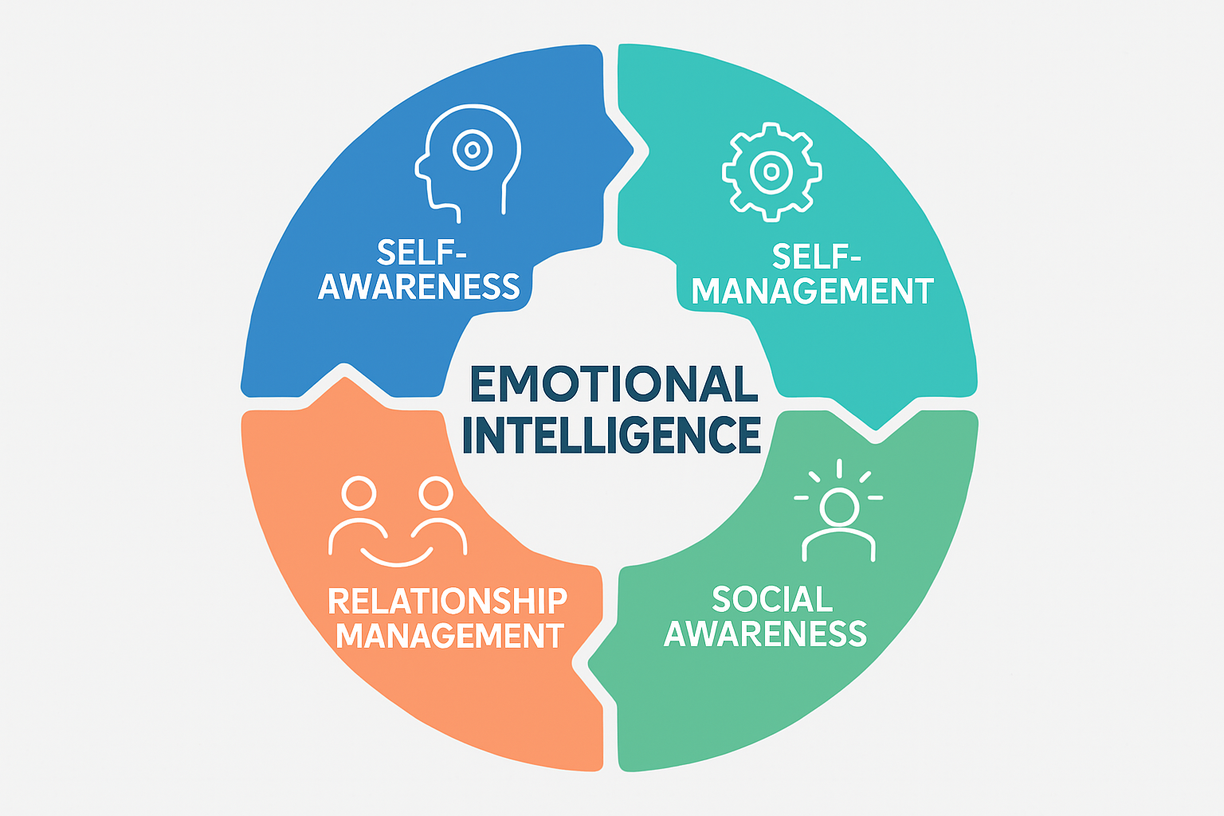
Emotional intelligence is the ability to manage your own emotions while understanding and influencing the emotions of others. It is a crucial skill for achieving success in both personal and professional realms. While this is a vast topic, we will focus on several key aspects that can help engineers thrive in their work environments.
Social Awareness
Levels of Listening
Listening is a fundamental skill essential for developing emotional intelligence. It helps build strong relationships, demonstrate empathy, and improve professional effectiveness, particularly in leadership and service roles. Here’s a closer look at the different levels of listening:
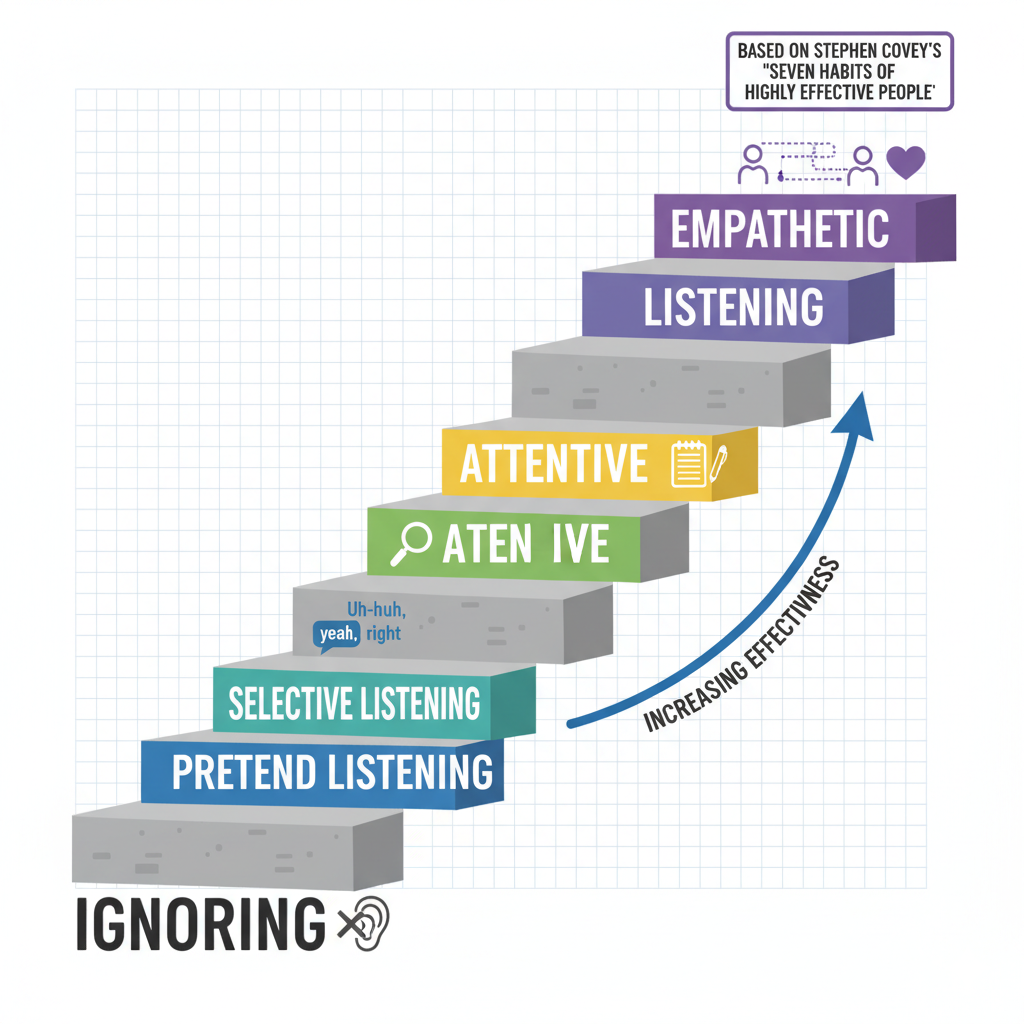
Ignoring At this lowest level, you are not listening at all. You actively tune out the speaker, often indicated by your body language and disinterest. This is the most detrimental level and should be avoided to prevent miscommunication. Ignoring can lead to misunderstandings and damage trust within teams.
Pretending You may use eye contact and body language to appear engaged, but you aren't actually processing what's being said. You are not listening to the message itself, only putting on a show of listening. This can create a false sense of connection and can be particularly damaging in professional settings where genuine interaction is needed.
Selective Listening You only pay attention to the parts of the conversation that interest you, filtering out everything else. This is useful when you need to extract specific information but is not full engagement. Selective listening may cause you to miss important details or nuances in a conversation.
Attentive Listening You pay close attention, take in the words, and make an effort to understand the message. You are actively engaged and focused on the speaker's communication. This level of listening fosters better understanding and collaboration.
Empathetic Listening The highest level, empathetic listening involves concentrating to understand the intent and meaning behind the message, including the speaker's feelings and perspective. You are not just hearing the words, but also the emotions and motivations. This deep level of listening can build strong, trust-based relationships and is crucial for effective leadership.
Sympathy vs. Empathy
Understanding the difference between sympathy and empathy is vital:
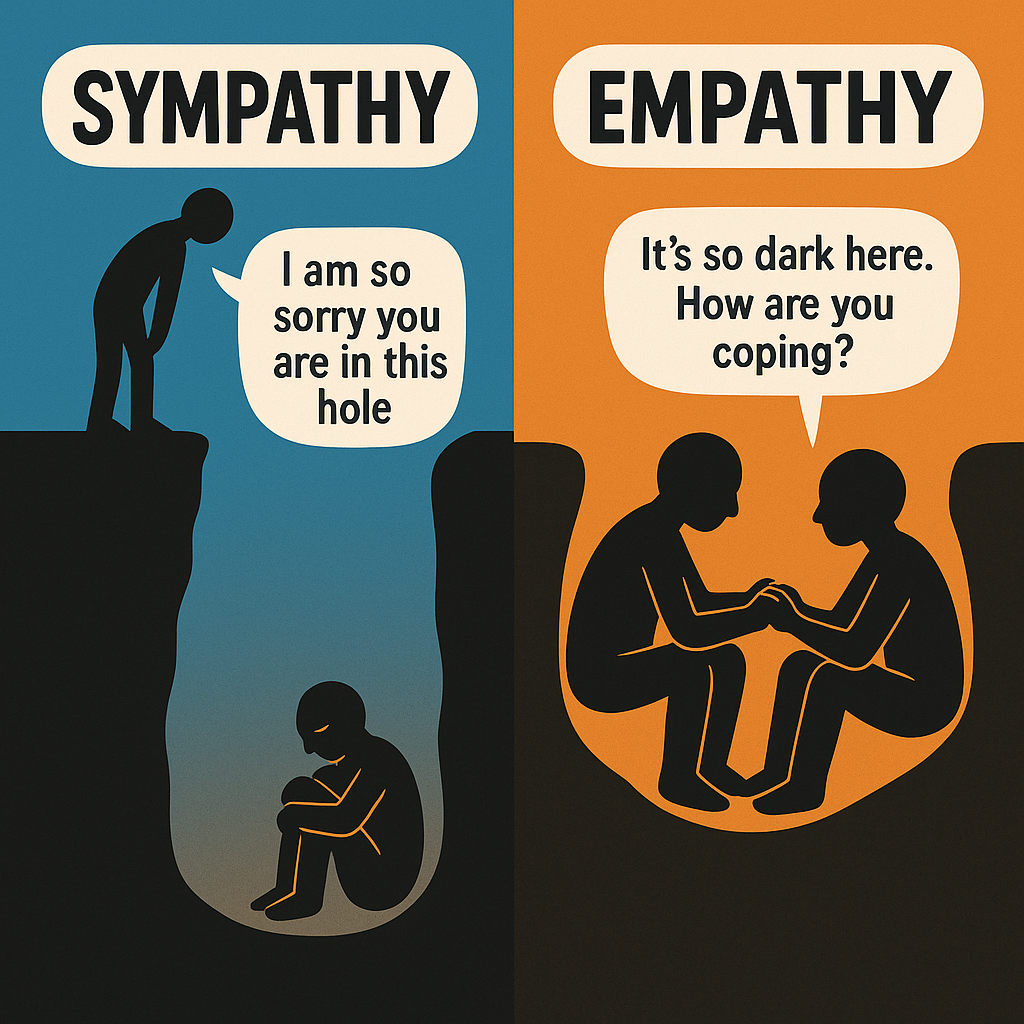
Empathy involves connecting with others by feeling with them, seeing through their eyes, and understanding their experiences. It fosters deep connections and is akin to "walking in their shoes."
Sympathy, on the other hand, means feeling pity or sorrow for someone’s misfortune without necessarily experiencing their emotions. Sympathy can inadvertently create distance in a relationship.
Curiosity: Asking the Right Questions in the Workplace
Curiosity is key to achieving deep communication and expressing genuine empathy. To truly demonstrate empathy, one must master the highest level of listening, known as Empathic Listening. This requires full attention, genuine curiosity, and a non-judgmental attitude.

Examples of Open-Ended Questions that boost Curiosity
- Team Meetings: “What are your thoughts on the current project timeline?”
- Performance Reviews: “How do you feel about your progress this quarter?”
- Brainstorming Sessions: “What are some other approaches we could consider for this challenge?”
- Feedback Discussions: “How do you think we can improve our team’s workflow?”
Relationship Management
Office Politics
Office politics are actions and behaviour involving competition for status or power in a workplace. Navigating office politics is crucial for effective relationship management. Understanding where colleagues stand on issues of trust and agreement can help tailor interactions and foster supportive environments.
Quiz: How savvy are you when it comes to office politics?
Dealing with Sheep, Donkeys, Foxes, and Owls
Workplace politics, often misunderstood, involve the dynamics of power and relationships in organizations. While it can have a negative connotation, constructive politics can promote collaboration and align efforts toward common goals. Not everyone is comming with integrity work and not every one is plotically aware, understanding different political "animals" in the workplace—sheep, donkeys, owls, and foxes—can help navigate these dynamics effectively.
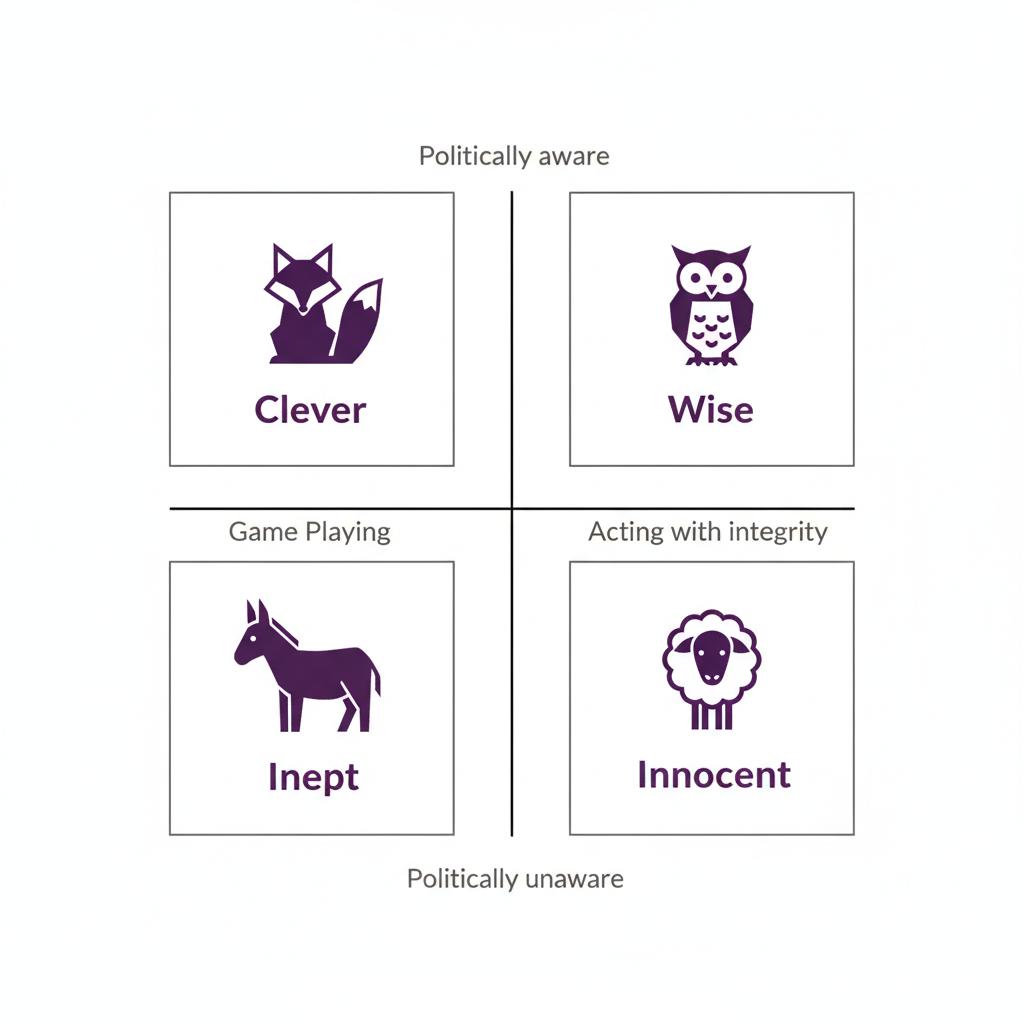
Sheep
Definition: Sheep are politically naïve but act in the group's interest. Their loyalty and industrious nature make them valuable team players who believe in the organization's mission.
Strategy: Sheep need guidance and leadership. Assign them roles where they can contribute effectively under the direction of a more politically savvy leader. Their commitment to the group’s interest can be harnessed to support team cohesion and morale.
Donkeys
Definition: Like sheep, donkeys are politically naïve, but they act out of self-interest. They may not always align their actions with the organization's goals.
Strategy: Manage donkeys by clarifying expectations and aligning their personal goals with the organization's objectives. Regular feedback and accountability can help ensure their efforts contribute positively to the team.
Owls
Definition: Owls are politically aware and prioritize the overarching goals and the welfare of people. They are respected for their integrity and loyalty to the organization.
Strategy: Owls are ideal for leadership roles as they naturally balance organizational needs with ethical considerations. Engage them in strategic planning and change initiatives where their insight and respect can drive successful outcomes.
Foxes
Definition: Foxes are politically aware but driven by self-interest. They are resourceful and capable of achieving results, often prioritizing personal gain over organizational goals.
Strategy: Foxes can be effective in challenging situations, provided they are closely managed. Clearly define their roles and monitor their actions to ensure their ambitions align with team objectives. Their ability to navigate complex situations can be an asset if their motivations are understood and guided constructively.
Agreement and Trust
Managing relationships based on trust and agreement:
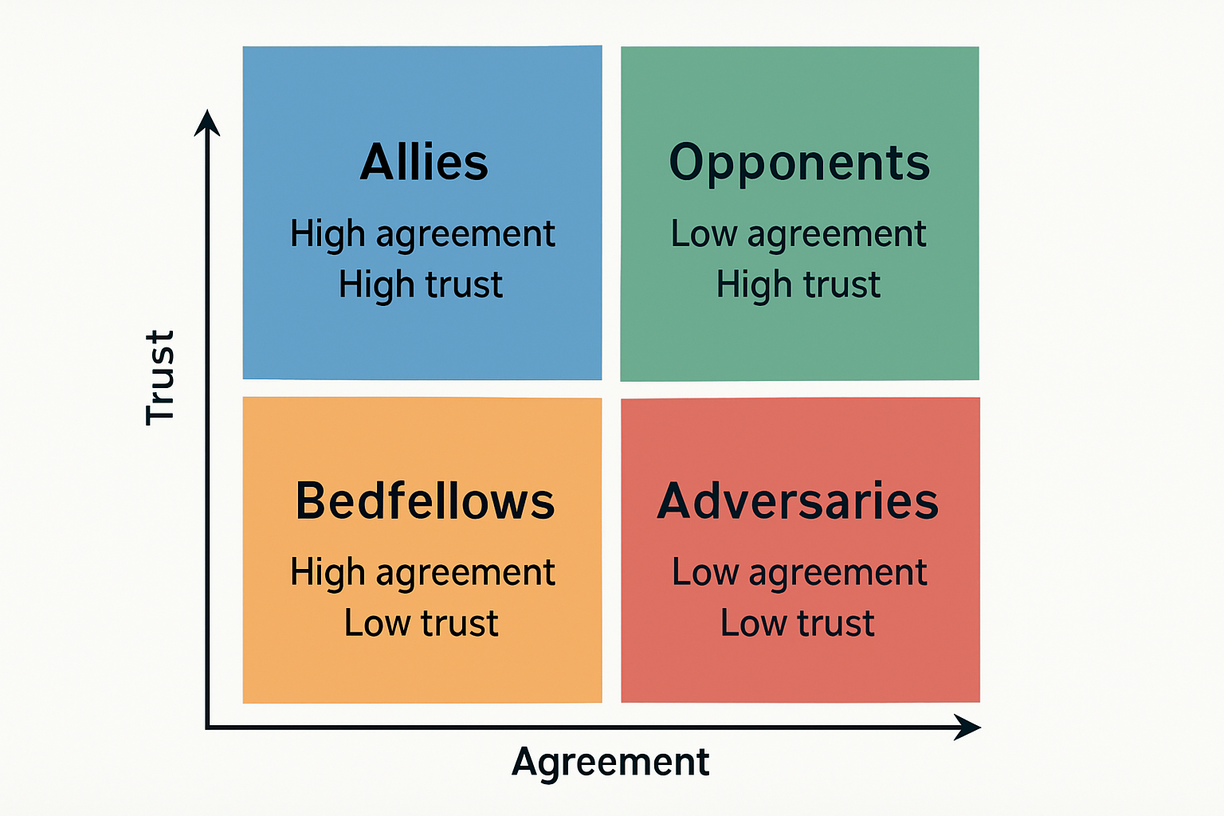
- Allies (high agreement / high trust): Affirm the relationship, discuss shared doubts, and seek advice and support.
- Opponents (high trust / low agreement): Affirm the relationship, state your position, and explore problem-solving together.
- Bedfellows (high agreement / low trust): Affirm agreement, discuss caution, and clarify mutual expectations.
- Fence-Sitters (low trust / unknown agreement): State your position and ask for their stance.
- Adversaries (low agreement / low trust): State your position, acknowledge disagreements, and outline your plans without demands.
How to deal with DARVO [the Shifting Blamer]?
DARVO is a defense mechanism used by abusers that stands for Deny, Attack, Reverse Victim and Offender. During a confrontation, a perpetrator uses these tactics to avoid taking responsibility for their harmful behavior.

How the DARVO tactic works:
- Deny The abuser denies their harmful behavior, refusing to accept responsibility for their actions.
- Attack The abuser attacks the victim's credibility, character, or perception, often by criticizing or demeaning them.
- Reverse Victim and Offender: The abuser flips the narrative, portraying themselves as the victim and the true victim as the aggressor.
When encountering DARVO (Deny, Attack, and Reverse Victim and Offender), consider these steps:
- Step Back & Breathe: Calm your nervous system.
- Reflect & Decode: Approach with curiosity.
- Decide If a Response Is Necessary.
- Stay Issue-Focused: If you choose to respond.
Choosing the Right Leader riddle

Meet our engineer manager Essam, Essam is tasked with promoting one of his team members to a leading role. Each member of his team has unique qualities:
Team Members
- Ahmed Known as the alpha developer, Ahmed has a remarkable ability to get things done efficiently. However, he prefers to work alone, which sometimes limits collaboration with others.
- Ali He’s the social butterfly of the team, approachable and friendly. But despite his excellent interpersonal skills, Ali struggles with consistently delivering high performance.
- Alaa A yes-man, Alaa is eager to please and often takes on tasks outside his team's responsibilities. While his willingness is commendable, it sometimes leads to overcommitment.
- Moneer Dependable and punctual, Moneer always delivers on time. However, he tends to do just the minimum required, lacking the ambition to go above and beyond.
The Decision.
Now, dear reader, who do you think Essam should choose? The efficient but solitary Ahmed, the amiable yet underperforming Ali, the overly agreeable Alaa, or the reliable but unambitious Moneer?
One might argue that a leader should be someone who can inspire others, work well within a team, and consistently deliver high-quality results. But here's the twist: the manager will choose whoever he feels like choosing.the manager will choose whoever he feels like choosing by his unconsious mind, remember!
Likability Through Trust and Knowledge
If you want to be likable, demonstrate that you like people, You need to be someone people not only see competence in, but also feel positivity toward, to earn their trust.

How?
- Smile more A smile lowers defenses, puts people at ease, and is contagious.
- Remember people’s names Using someone’s name makes them feel acknowledged and special.
- Look in people’s eyes Eye contact signals interest and respect — it conveys that the person matters to you.
- Listen carefully[Empathetic Listening] It’s not enough to ask; you must also be present, empathize, clarify, and resist the urge to multitask mentally.
- Ask questions[curoisty] People love talking about themselves. Asking shows curiosity and shifts attention to them.
Be grateful - Expressing genuine thanks shows you notice others’ contributions and value them.
- Celebrate milestones [visability] If It Isn’t Documented, It Didn’t Happen, Recognizing wins—big or small—reinforces that progress is seen and appreciated.
Final Thoughts
After you grasp that, congratulations! You are on your way to thriving not only in your work environment but also in your personal life. However, the journey of emotional intelligence is in the beginning. For more profound impact and influence in your career, consider exploring the folowing topics:
- Self-Awareness Personality types, the "Surrounded by Idiots" concept, the Wheel of Emotions.
- Self-Management Cognitive Behavioral Therapy (CBT), and The Subtle Art of Not Giving a Fck*.
- Social Awareness The SCARF model.
- Relationship Management Conflict resolution, "Getting to Yes," and managing your boss effectively.
By exploring these aspects, tech engineers can enhance their emotional intelligence and navigate both their professional and personal lives with greater ease and success.